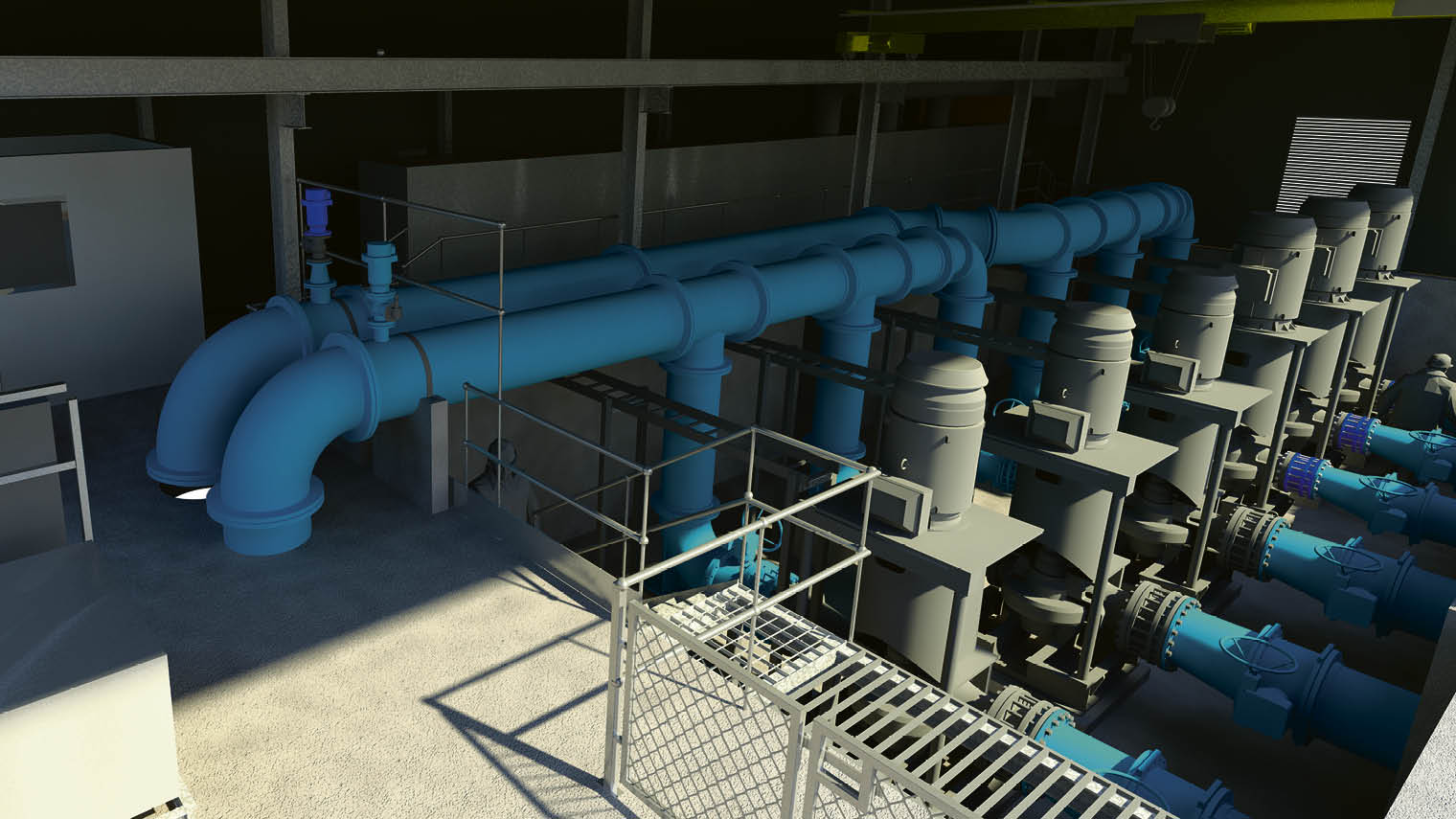Water will be one of the defining issues of this century. Research already suggests that water crises are the third biggest global risk and that 40 per cent of the global population will be living in areas of severe water stress by 2050. Yet in spite of this, business leaders are not factoring water into their decision-making and long-term business strategy.
However, Anglian Water is a company leading the way. It operates in the country’s fastest-growing and driest region, with some areas having a lower average rainfall than Jerusalem. Unlike other water wholesalers in far wetter parts of the UK, Anglian Water has seen droughts in 1979, 1995, 2005 and 2012, yet it’s managed to avoid frequent hosepipe bans and successfully maintained water supplies in the face of growing demand.
In 2010, Anglian Water launched its pioneering Love Every Drop strategy to transform the way we use and value water. The company is encouraging different behaviours and attitudes to water among customers, sharing sustainability best practice, and working to ensure water is high on the corporate agenda.
Chief executive Peter Simpson says: “The region we supply has seen huge growth in the years since the water industry was privatised. It’s home to some of the UK’s fastest-growing economies, such as Cambridge, Peterborough and Milton Keynes, and the number of homes we supply has grown 27 per cent.

Anglian Water is building new infrastructure, such as this new pumping station at Grafham Water in Cambridgeshire, part of a £28-million investment to make the region more resilient
“Yet we actually supply slightly less water than we did in 1989 thanks to long-term reductions in leakage, encouraging the majority of customers to use a water meter and by installing water efficiency devices in people’s homes.”
Anglian Water’s innovative approach to tackling leaks has made it an industry leader, with the lowest level of leakage of any water company.
“We’re waging war on leaks,” says Mr Simpson, “with £60 million being invested between now and 2020 to drive it even lower, and we’re working hard to help customers become more water efficient.
“But the population continues to grow and climate change is likely to place evermore pressure on water resources.
“To meet future demand we need to work with others, including agriculture, businesses, customers and conservationists.
“We’re putting this into practice through our Water Resources East initiative, which takes a long-term, collaborative view to securing water supplies for the future.”
Water powers our economy and should be firmly on the agenda of every business
At a national level, Anglian Water was asked to lead a resilience taskforce looking at the nationwide risk and economic cost of water shortages, and reporting directly to the UK water minister. This will map out the steps required to avoid a repeat of major incidents like the 1976 drought.
The report found investment needed to increase resilience is relatively modest compared with the enormous social and economic cost of a severe national drought, which could total £1.3 billion a day. In such a scenario, no commercial sector would escape unscathed.
Whether it’s the 450 litres of water it takes to produce a single pound of potatoes or the astounding 8,500 litres to make a pair of shoes, water powers our economy and should be firmly on the agenda of every business.
 With the stakes so high, Mr Simpson has become an international advocate on drought management and climate change. He sat on the National Drought Management Group in 2012 and was among business leaders calling for action at the Paris climate summit last November. This year, he met with the Environment, Food and Rural Affairs Committee to discuss the challenges posed by more extremes of weather as the demand for new housing continues to grow.
With the stakes so high, Mr Simpson has become an international advocate on drought management and climate change. He sat on the National Drought Management Group in 2012 and was among business leaders calling for action at the Paris climate summit last November. This year, he met with the Environment, Food and Rural Affairs Committee to discuss the challenges posed by more extremes of weather as the demand for new housing continues to grow.
He says: “Climate change threatens to make our weather less predictable and more extreme, that’s why I am unrelenting on the drought agenda, even when it’s raining or other things seem more important.
“If more extreme weather patterns continue to impact the nation, and if we fail to deal properly with the consequences of climate change, many communities and businesses will be under threat.
“I’ve been reassured by the positive contribution from water minister Therese Coffey, who has been actively engaged and is ensuring her team at Defra continue to work successfully alongside the industry.
“Our country’s water and sewerage infrastructure is often out of sight, out of mind, but is absolutely vital to our health and prosperity. We must ensure all water companies are resilient enough to face these challenges, and ultimately we must protect vital water supplies and the millions of families, communities and businesses that depend on them.”
Innovation will be vital in meeting these challenges. To foster this innovation, Anglian Water has launched a major new project in Cambridgeshire called Shop Window. It’s trialling new tools, techniques and ways of working to shape the water company of the future.
“This is one of the most exciting and revolutionary initiatives in the water industry, with innovation applied across the entire water cycle.
“We’ll be trying to answer big questions, such as how can we minimise leaks, floods and pollution? How can we become energy neutral and build a circular economy? How do we help people reduce usage to truly sustainable levels?
“Successful innovations will be rolled out to the wider region, bringing benefits to customers, the environment and our business.”
And with the prospect of so much economic uncertainty in the months and possibly years ahead, a key message for businesses is there are opportunities to make substantial cost-savings by putting water at the heart of their agenda.
From April 2017, all businesses in England, including charity, public sector and not-for-profit organisations, will be able to switch their water supplier and their sewerage or trade effluent supplier, in a similar way to switching their energy and telecom suppliers. Competition will allow companies to find a retailer that meets their business needs and also delivers cost-savings, efficiencies and environmental responsibilities through innovation.
Mr Simpson concludes: “The world is changing fast and we need to keep pace if we’re to meet the challenges and take advantage of the opportunities that brings. Get it right and water will be the key that unlocks truly sustainable growth and shared prosperity. We will continue to lead and to collaborate, and hope that our example will inspire others. Together, we can continue to make all the difference in the world.”
For more information please visit www.anglianwater.co.uk
